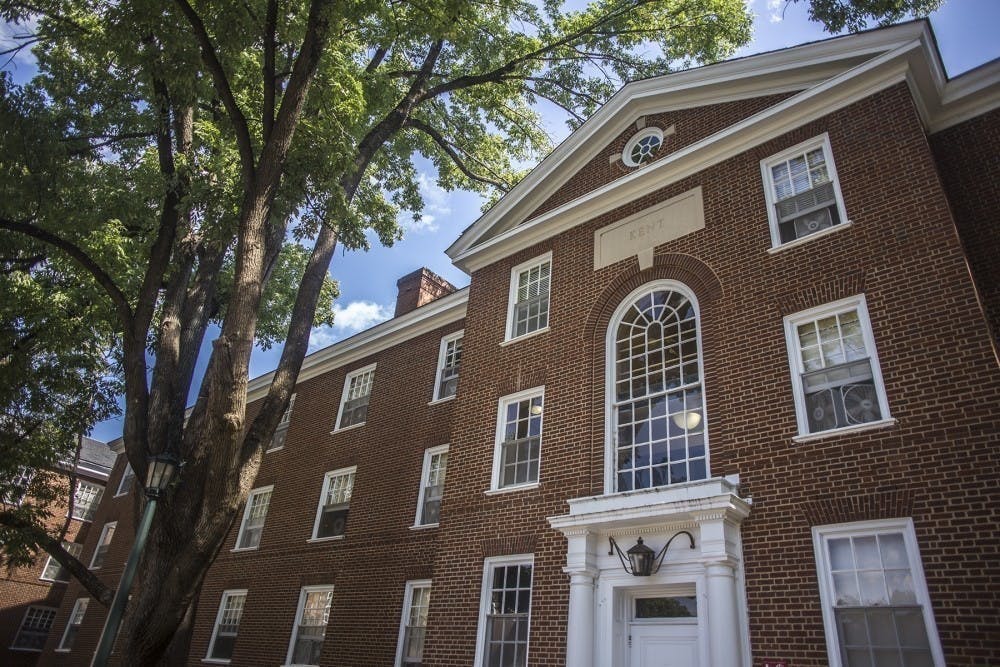COVID-19 has turned resident advisors into frontline workers — they live in hazardous environments with increased responsibilities and must be compensated accordingly. Even in non-pandemic times, RAs aren’t remunerated adequately for the extensive beneficial services they provide to first-years. As a first-year living in the dorms, I can personally attest to their substantial responsibilities. This year, I have knocked on my RA’s door at 5 a.m. for help, asked her for advice about my coronavirus-related concerns and participated in several small events she has hosted to decrease our stress levels — and I’m only one of many students that she is expected to support.
Traditionally, before the pandemic, RAs were provided “a furnished room rent-free during the appointed term” and a “Resident Staff Meal Plan,” which equates to “100 meals per semester and $140 plus dollars per semester.” To determine the monetary value of these benefits, it is easiest to compare the price to the alternative — living off-grounds. The University estimates the average monthly cost of an off-Grounds apartment to be $1,183. In addition, the University estimates that the other services provided to RAs such as “expenses for electricity, heating, gas, water and/or trash” equate to about $199 per month off Grounds. Considering the length of the spring and fall terms, the housing and related services provided to the RAs are judged to be worth $11,056. Regarding food, RA’s are provided access to roughly 115 meals per semester. The estimated average cost for a single portion of home-cooked food is $4.31, so this meal plan is the equivalent of about $992 to be used towards food expenses. Further worth mentioning is that while typically RAs are provided access to the dorm kitchen to supplement their meal plans, they have not received that privilege this year due to coronavirus concerns — thereby suggesting that RAs have lost benefits during coronavirus times. In total, RAs are compensated roughly $12,048.
The expected duties of the RAs mandate that they are nearly always available to provide assistance to first-years — in addition to a myriad of other responsibilities that include opening and closing dorms to enforcing University drug and alcohol policy. Notably, one of their responsibilities is to “ensure that all residents comply with stated policies.” During the pandemic, this means much more work than ever before. Ensuring that first-years consistently maintain the appropriate coronavirus regulations as well as all of the other traditional dorm rules requires constant diligence. These duties can only be accomplished by time spent supporting and conversing with individual first-years. The lengthy and complex roles of RAs demands better remuneration.
The RAs this year are also at significant risk, especially in the form of contracting the coronavirus. The University has already had numerous dorm wide quarantines and has other confirmed coronavirus cases in first-year dorms. It is impossible for the RAs to effectively avoid contact with potentially infected students — as such it is impossible for the University to guarantee safety for the RAs. These risks are compounded considering the reckless nature of many first-years. For many first-year students, this is their first extended time away from home. The University has largely relied on self-accountability and the expectation that the first-year students understand their responsibility to themselves and their community and take the appropriate precautions. I tend to agree with this expectation — it is unrealistic to expect the University to successfully micromanage the thousands of first-year students on Grounds. However, the University should not expect RAs to bear the consequences of the rash and thoughtless actions of many first-year students.
The contents of a letter University RAs published on Twitter indicates their coronavirus-related demands. Demands include, but are not limited to, financial compensation and hazard pay, adequate personal protective equipment and risk reduction and additional policing and COVID-19 guidelines. The letter also addresses some of the concerns listed earlier — for example, the lack of access to a dorm kitchen and increased susceptibility to contracting COVID-19. RAs have insisted on University support during the coronavirus pandemic. Therefore, the University should respond to these demands appropriately and provide the needed support.
The coronavirus pandemic has changed nearly everything about our lives — it takes advantage of problems that we hadn’t noticed and exacerbates those difficulties. The bottom line is that RAs should be better compensated. I have learned the comprehensive role RAs play in supporting first-years — they should be better paid and more highly valued. Support for the RAs in their frontline duties is especially crucial this year. The University should better consider the dangerous predicament that they live in and compensate them accordingly.
Jessica Moore is a Viewpoint Writer for The Cavalier Daily. She can be reached at opinion@cavalierdaily.com.







